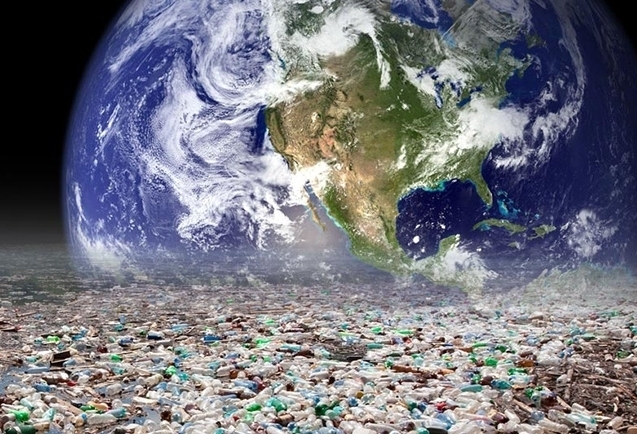



UN roadmap outlines solutions to cut global plastic pollution

Baku, May 17, AZERTAC
Plastic pollution could reduce by 80 per cent by 2040 if countries and companies make deep policy and market shifts using existing technologies, according to a new report by UN Environment Programme (UNEP).
The report is released ahead of a second round of negotiations in Paris on a global agreement to beat plastic pollution, and outlines the magnitude and nature of the changes required to end plastic pollution and create a circular economy.
Turning off the Tap: How the world can end plastic pollution and create a circular economy is a solutions-focused analysis of concrete practices, market shifts, and policies that can inform government thinking and business action.
“The way we produce, use and dispose of plastics is polluting ecosystems, creating risks for human health and destabilizing the climate,” said Inger Andersen, UNEP Executive Director. “This UNEP report lays out a roadmap to dramatically reduce these risks through adopting a circular approach that keeps plastics out of ecosystems, out of our bodies and in the economy. If we follow this roadmap, including in negotiations on the plastic pollution deal, we can deliver major economic, social and environmental wins.”
Even with the measures above, 100 million metric tons of plastics from single-use and short-lived products will still need to be safely dealt with annually by 2040 – together with a significant legacy of existing plastic pollution. This can be addressed by setting and implementing design and safety standards for disposing of non-recyclable plastic waste, and by making manufacturers responsible for products shedding microplastics, among others.
Overall, the shift to a circular economy would result in USD 1.27 trillion in savings, considering costs and recycling revenues. A further USD 3.25 trillion would be saved from avoided externalities such as health, climate, air pollution, marine ecosystem degradation, and litigation-related costs. This shift could also result in a net increase of 700,000 jobs by 2040, mostly in low-income countries, significantly improving the livelihoods of millions of workers in informal settings.
Investment costs for the recommended systemic change are significant, but below the spending without this systemic change: USD 65 billion per year as opposed to USD 113 billion per year. Much of this can be mobilized by shifting planned investments for new production facilities ¬– no longer needed through reduction in material needs – or a levy on virgin plastic production into the necessary circular infrastructure. Yet time is of the essence: a five-year delay may lead to an increase of 80 million metric tons of plastic pollution by 2040.
The highest costs in both a throwaway and circular economy are operational. With regulation to ensure plastics are designed to be circular, Extended Producer Responsibility (EPR) schemes can cover these operational costs of ensuring the system’s circularity through requiring producers to finance the collection, recycling and responsible end-of-life disposal of plastic products.
Internationally agreed policies can help overcome the limits of national planning and business action, sustain a flourishing circular global plastics economy, unlock business opportunities and create jobs. These may include agreed criteria for plastic products that could be banned, a cross-border knowledge baseline, rules on necessary minimum operating standards of EPR schemes and other standards.
The report recommends that a global fiscal framework could be part of international policies to enable recycled materials to compete on a level playing field with virgin materials, create an economy of scale for solutions, and establish monitoring systems and financing mechanisms.
Emperor penguins lost thousands of chicks to melting ice last year
From Death Valley to the Swiss Alps, extreme weather records hit new heights
Magnitude 5.0 quake jolts Azerbaijan’s Masalli-Jalilabad administrative border